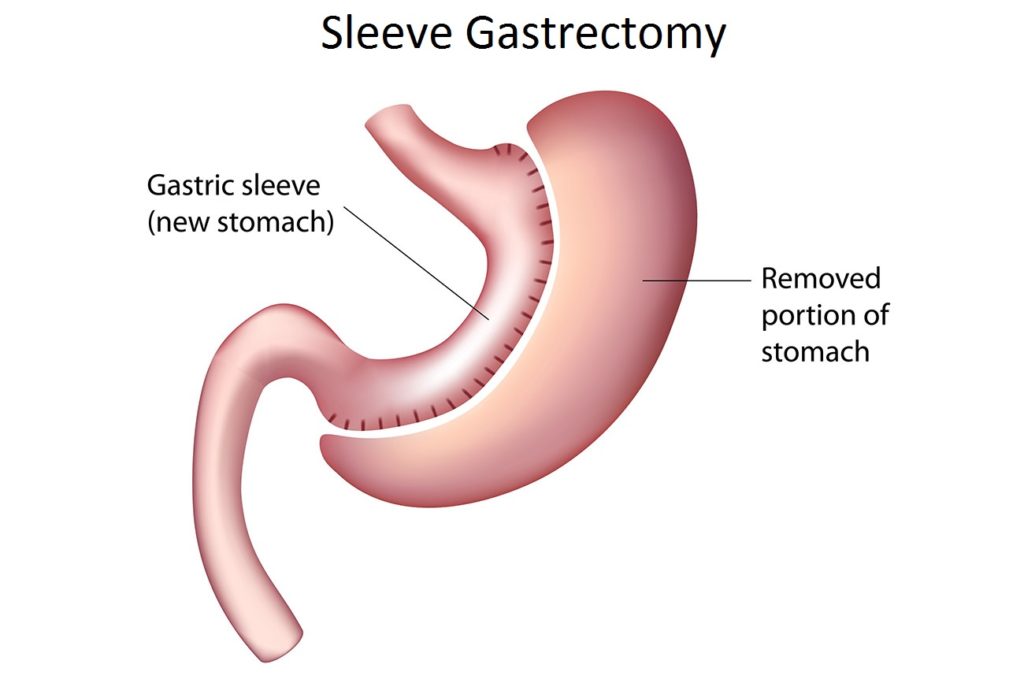In the realm of bariatric surgery, Gastric Sleeve Surgery (GSS) has emerged as a popular choice for individuals grappling with obesity and seeking a medical intervention to aid in their weight loss journey. As a Bariatric surgeon with over 20 years of experience, I have witnessed firsthand the profound impact this procedure can have on the lives of patients. It not only significantly contributes to weight reduction but also ameliorates obesity-associated comorbidities such as diabetes, hypertension, and sleep apnea. However, like any surgical procedure, GSS comes with its own set of potential risks and complications. The journey to deciding whether this procedure is right for you should commence with a thorough understanding of both the benefits and the inherent risks involved.
This blog aims to elucidate the potential risks and complications associated with Gastric Sleeve Surgery to equip you with the necessary knowledge to make an informed decision. The growing popularity of this procedure underscores the importance of being well-informed about what to expect before, during, and after surgery.
Understanding the Procedure
Gastric Sleeve Surgery, medically known as Sleeve Gastrectomy, entails the removal of a substantial portion of the stomach, approximately 80-85%, leaving behind a tubular “sleeve” which is sealed with staples. This significantly reduces the stomach’s capacity, which in turn restricts food intake and promotes a feeling of fullness even after consuming small meals. The procedure also impacts the gut hormones related to hunger, satiety, and blood sugar control, further facilitating weight loss.
The primary goal of GSS is to provide a sustainable and significant weight loss solution for individuals with a Body Mass Index (BMI) of 40 or higher, or 35 or higher if associated with obesity-related health conditions. The surgery is often recommended when other weight loss methods such as diet, exercise, and medication have not yielded the desired results.
Like any surgical procedure, Gastric Sleeve Surgery carries inherent risks that are common to many operations. Here are some of the general surgical risks:
Infection: Infections can occur at the incision site or within the abdomen. It’s crucial to follow post-operative care instructions to minimize the risk of infection.
Adverse Reactions to Anesthesia: Although rare, some individuals may experience adverse reactions to anesthesia, which can range from mild to severe.
Blood Clots: The risk of developing blood clots, particularly in the legs (deep vein thrombosis), is a concern with any surgical procedure. These clots can potentially travel to the lungs (pulmonary embolism), posing a significant risk.
Bleeding: Bleeding can occur during or after the surgery, although it’s relatively rare. In some cases, additional surgery might be required to control the bleeding.
Specific Risks Associated with Gastric Sleeve Surgery
Sleeve Leaking: One of the more serious complications post-surgery is a leak from the staple line which seals the newly formed sleeve. This can lead to infection and requires immediate medical attention.
Stomach Stricture or Obstruction: Scarring can cause a narrowing (stricture) of the stomach sleeve, or in rare cases, an obstruction. This might necessitate further medical intervention.
Gastroesophageal Reflux Disease (GERD): Some patients may experience an increase in GERD symptoms post-surgery, which can cause discomfort and other health issues if not managed properly.
Malnutrition and Vitamin Deficiencies: The reduced stomach size can lead to a decrease in nutrient absorption. Patients need to follow a specific diet and often take vitamin and mineral supplements to prevent deficiencies.
Gastric Sleeve Stenosis: This is a rare complication where the sleeve becomes too narrow, making it difficult or uncomfortable to eat.
Long-term Complications and Concerns
Weight Regain: Over time, the stomach sleeve may stretch, and if dietary recommendations are not followed, there’s a possibility of weight regain.
Emotional and Psychological Effects: The dramatic change in body weight and lifestyle can also have emotional and psychological effects, which should be addressed with the support of healthcare professionals.
Potential for Additional Surgeries: Some patients may require additional surgeries to address complications or to achieve desired weight loss goals, which carries its own set of risks.
Mitigating Risks
Pre-operative Assessments and Preparations: Thorough pre-operative assessments are imperative to evaluate your overall health and readiness for surgery. This includes blood tests, nutritional assessments, and psychological evaluations to ensure a comprehensive understanding of your health status.
Choosing a Qualified and Experienced Surgeon: Selecting a surgeon with a proven track record in bariatric surgery can significantly mitigate risks. Look for board-certified surgeons who have substantial experience with gastric sleeve procedures.
Adhering to Post-operative Guidelines and Follow-ups: Following your surgeon’s post-operative instructions meticulously and attending all follow-up appointments can significantly reduce the risk of complications and ensure a smooth recovery.
Alternative Weight Loss Surgeries
Comparison with Gastric Bypass and Lap-Band Procedures: It’s important to consider alternative bariatric procedures like Gastric Bypass and Lap-Band. Each procedure has its own set of risks, benefits, and long-term outcomes. Discussing these alternatives with your healthcare provider can provide a broader perspective on the available options for weight loss surgery.
Risk and Benefit Analysis: Conducting a thorough risk and benefit analysis with your healthcare professional can provide clarity on the most suitable procedure based on your individual health condition and weight loss goals.
Conclusion
The journey towards overcoming obesity and regaining control over one’s health is a commendable endeavor. Gastric Sleeve Surgery is a potent tool in this journey, yet it comes with its set of risks and complications. Being well-informed and prepared, choosing the right healthcare professional, and adhering to pre and post-operative guidelines are crucial steps towards ensuring a successful outcome.
It’s imperative that you engage in a thorough discussion with your healthcare provider, considering all the potential risks, benefits, and alternatives before making a decision regarding Gastric Sleeve Surgery. Your safety, health, and long-term success in managing your weight and improving your quality of life should be at the forefront of this significant decision.
References
https://www.mayoclinic.org/tests-procedures/sleeve-gastrectomy/about/pac-20385183
https://my.clevelandclinic.org/health/treatments/22931-gastric-sleeve-surgery
https://www.healthline.com/health/gastric-sleeve
https://www.hopkinsmedicine.org/health/treatment-tests-and-therapies/gastric-sleeve-surgery

